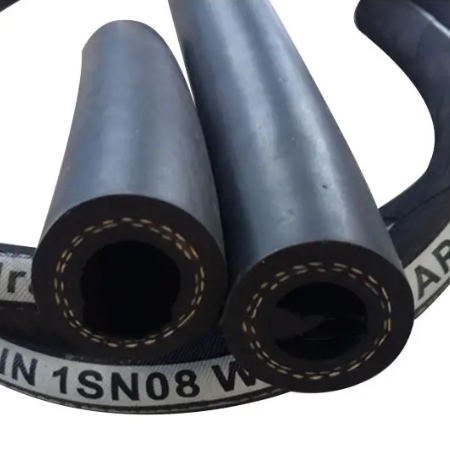8 月 . 18, 2024 01:26 Back to list
Leading Manufacturers of High-Quality Hydraulic Hose Products for Various Industrial Applications
The Role of Hydraulic Hose Factory Manufacturers in Modern Industry
Hydraulic hoses are crucial components in various industrial applications, serving as vital conduits for transmitting fluids under high pressure. This functionality is integral to the operation of machinery in sectors ranging from construction and agriculture to manufacturing and automotive industries. Hydraulic hose factory manufacturers play a pivotal role in the supply chain by producing durable, high-quality hoses that meet specific engineering standards and customer needs.
Understanding Hydraulic Hoses
Hydraulic hoses are specially designed tubes that transport hydraulic fluids, which can include water, oil, or other compounds. These hoses are engineered to withstand high pressures, often exceeding 3000 psi, and must be resistant to abrasion, kinking, and other environmental stresses. Manufacturers utilize various materials, including rubber, thermoplastic, and metal, to meet different operational requirements. The choice of materials affects the hose’s flexibility, resilience, and resistance to chemicals, making it essential for manufacturers to select the right components based on the intended use.
The Manufacturing Process
The production of hydraulic hoses involves several stages, starting from the selection of raw materials to the final inspection of the finished product. Quality control is paramount in this process to ensure that every hose meets industry standards and customer specifications.
1. Material Preparation Manufacturers source high-quality materials that are tested for durability and performance. This preparation phase ensures that the hoses can withstand rigorous conditions.
2. Fabrication In this stage, the materials are cut and shaped according to specific lengths and diameters. Advanced machinery is often used for precise fabrication, which minimizes waste and defects.
3. Reinforcement Hydraulic hoses typically require reinforcement to provide additional strength. This can involve layers of textile or steel wire, which are integrated into the hose structure during manufacturing.
hydraulic hose factory manufacturers

4. Final Assembly Once the hoses are fabricated and reinforced, fittings and couplings are added. This step is crucial for ensuring that hoses can connect seamlessly with other hydraulic components.
5. Testing and Quality Assurance Finished hoses undergo rigorous testing to check for leaks, pressure tolerance, and flexibility. Quality assurance tests are critical to ensure reliability, as a failure in a hydraulic system can lead to costly downtime and pose safety risks.
Innovations in Hydraulic Hose Manufacturing
In recent years, hydraulic hose manufacturing has evolved significantly with the advent of new technologies and materials. Manufacturers are increasingly adopting automation and computer-aided design (CAD) systems, which enhance precision and efficiency in production. Furthermore, advances in material science have led to the development of hoses that are lighter, more flexible, and more resistant to extreme temperatures and chemicals.
Sustainability is also becoming a priority for manufacturers. Many are investing in eco-friendly materials and processes to reduce the environmental impact of production. This shift not only aligns with global sustainability goals but also meets the growing demand from customers for more sustainable products.
The Importance of Choosing the Right Manufacturer
For businesses relying on hydraulic systems, selecting a reliable hydraulic hose factory manufacturer is critical. Factors such as the manufacturer's reputation, quality certifications, and customer service capabilities should be carefully evaluated. Long-term partnerships with reputable manufacturers can enhance operational efficiency and provide access to expert technical support.
In conclusion, hydraulic hose factory manufacturers are essential players in the modern industrial landscape. Their ability to produce high-quality, durable hoses ensures that various industries can operate smoothly and safely. As technology and material science continue to advance, these manufacturers will play an even more significant role in shaping the future of hydraulic systems, driving innovations that enhance performance and sustainability in industrial applications.
-
EN857 2SC Hydraulic Hose Suppliers OEM & China Manufacturers
NewsMay.30,2025
-
51mm Hydraulic Hose Manufacturer China OEM Durable & Custom Solutions
NewsMay.30,2025
-
OEM Rubber Air Hose Supplier Durable Custom Solutions
NewsMay.29,2025
-
High-Pressure Wrapped Cover Steel Wire Spiral Hydraulic Hose Supplier
NewsMay.29,2025
-
Rubber water suction and discharge hose
NewsMar.07,2025
-
SAE 100 R6/EN 854 R6 Fibre Braided Oil Hose
NewsMar.07,2025



